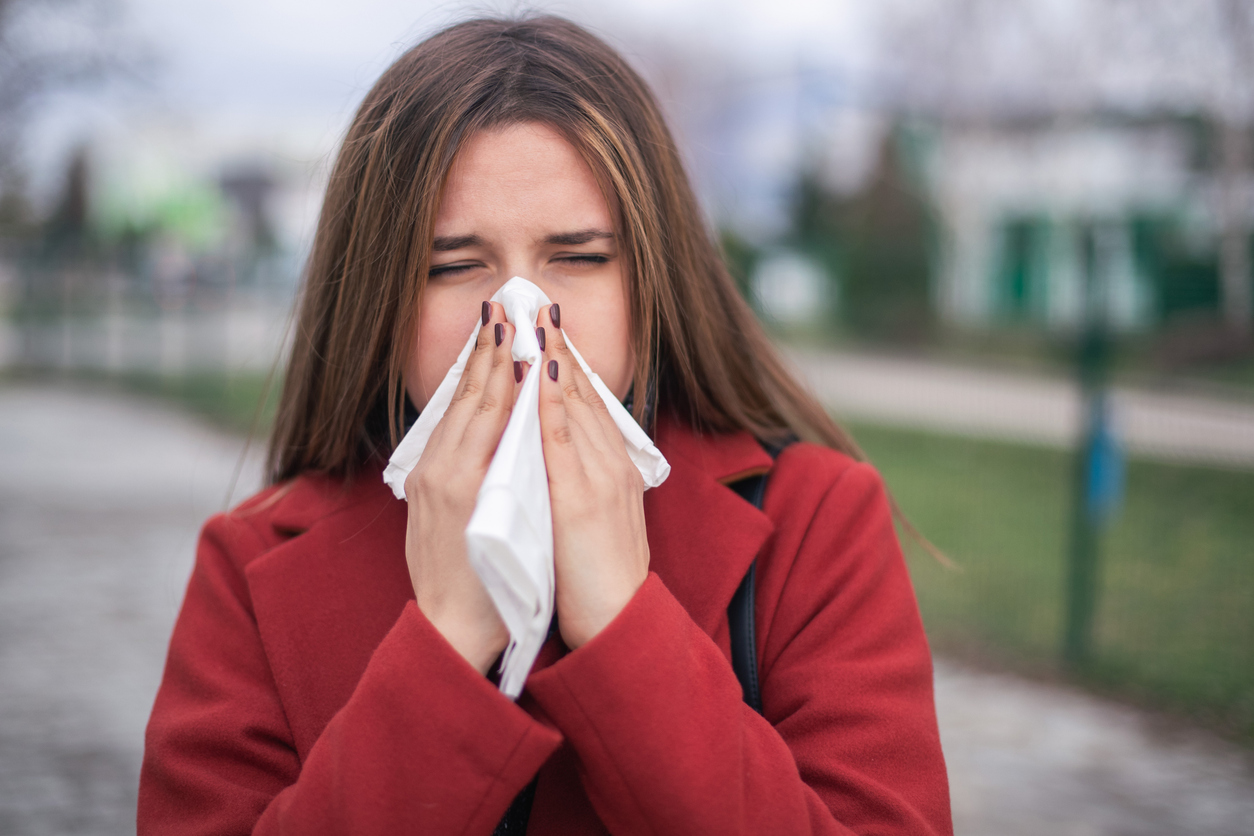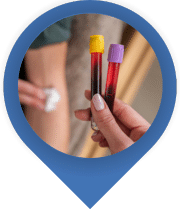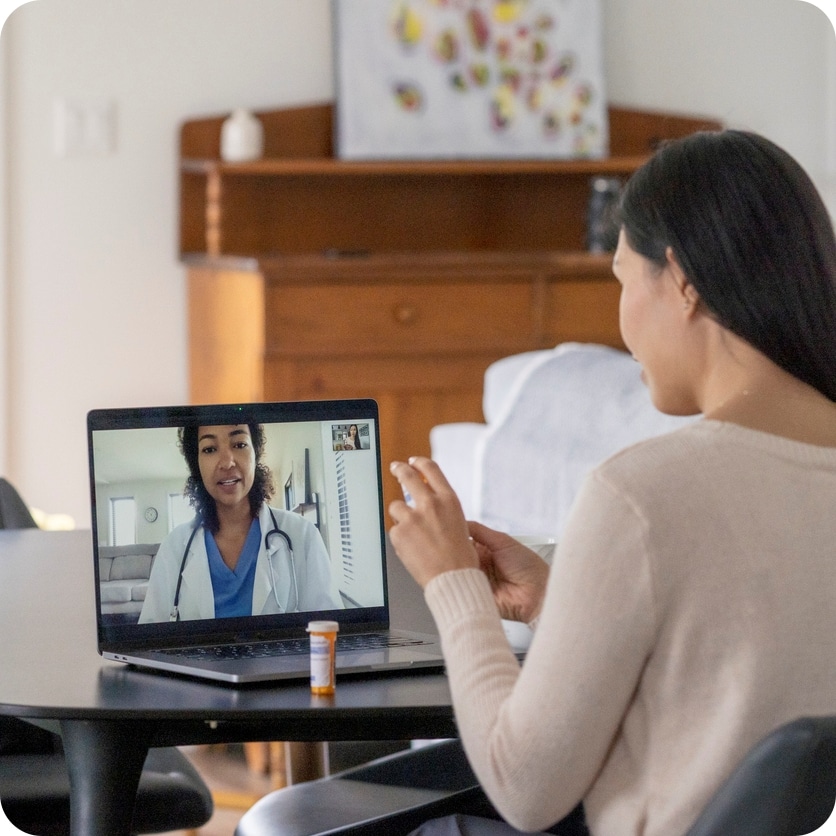The Latest Healthcare News
Check out our blog to learn more from our team about the latest medical advancements, health tips, and primary care news.

Itchy eyes, runny nose, sneezing, and even brain fog are all signs you may suffer from seasonal allergies, which develop when your immune system overreacts to something in the environment.
At AllCare, our immediate care professionals can diagnose your seasonal allergies (also allergic rhinitis) and offer a care plan to help alleviate your symptoms. If your symptoms don’t improve or you have chronic sinus infections during allergy season, make an appointment with one of our dedicated AllCare primary care physicians for additional allergy testing to determine whether it’s seasonal allergies you’re reacting to and what further treatments you may need.
Nearly 50 million people suffer from seasonal allergies. While some people adopt an “I’ll just suffer through it” attitude until their symptoms become unbearable, you should see a doctor to get the best possible treatment for your seasonal allergies. An AllCare immediate care physician can also confirm that you are truly experiencing seasonal allergies since some symptoms mimic the common cold.
Our immediate care physicians are committed to helping relieve your symptoms and we understand that seasonal allergies affect everyone differently. That’s why we’ll work closely with you to identify your seasonal allergy triggers and create a personalized plan that may include lifestyle modifications and medications.
Seasonal allergies can significantly impact your quality of life, making it important to recognize the symptoms early for effective management. Common signs of seasonal allergies include:
Don’t let seasonal allergies control your life—schedule an appointment with us today and take the first step towards feeling better. Our immediate care services are designed to help you relieve your specific symptoms as we understand that seasonal allergies affect everyone differently.

Seasonal allergies are often triggered by a variety of environmental factors that change with the seasons. By understanding when and where these allergens are most prevalent, you can take steps to minimize exposure and alleviate symptoms. Common seasonal allergy triggers include:

Immunotherapy can provide long-term relief for individuals with severe seasonal allergies by desensitizing the immune system. Our doctors will evaluate your allergy triggers and refer you to a specialist if you need this type of treatment.

Allergen blood tests can help detect seasonal allergies by checking your blood for increased levels of immunoglobulin E (IgE) antibodies.

We offer a range of medications to help you manage seasonal allergy symptoms, including antihistamines, decongestants, eye drops, cough medicines, inhalers, and steroid nasal sprays. Our immediate care team will work with you to determine the most effective treatment options for your individual needs.

With a skin test, you’ll experience a prick to the skin, which will then be exposed to a suspected allergen. If the skin becomes red or swollen, an allergy exists. A skin test typically takes 24 to 48 hours to produce a result.

In addition to medication and immunotherapy, our immediate care doctors can prescribe effective topical medications to help manage your allergy symptoms. These treatments are designed to target specific areas affected by allergens, providing relief from symptoms such as itching, redness, and inflammation.

Experience the convenience of telehealth appointments at AllCare. Our telemedicine services are designed to provide you with seamless access to healthcare without the need to leave your home. Whether you need an online doctor’s appointment for immediate or primary care, AllCare’s got you covered. With our online telehealth services currently available to individuals located in Virginia, Maryland, and Washington, D.C., you can connect with our experienced immediate and primary care physicians via secure video calls.
At AllCare, we are expanding our virtual healthcare access to all services previously offered in person. This includes:
Since seasonal allergy symptoms can mimic other conditions, you should speak with a physician to receive the proper diagnosis and treatment plan. See your doctor for seasonal allergies if:
Please note: If you experience severe allergic reaction symptoms, go to the nearest emergency room or call emergency services right away.
Seasonal allergies and colds share many of the same symptoms, including sneezing, congestion, runny nose, watery eyes, fatigue, and headaches. However, you’re more likely to have an itchy nose and eyes if you’re experiencing seasonal allergies. In addition, cold symptoms usually resolve within seven to ten days, where allergy symptoms last as long as you’re exposed to the allergen.
While there is no cure for seasonal allergies, you can reduce your symptoms with a little bit of work. Avoiding common triggers, wearing a mask outdoors when pollen counts are high, and using high-efficiency (HEPA) filters in your heating and cooling system are just a few tactics that may offer some relief.
Yes. There are many reasons you may develop allergies later in life. Immune system changes, exposure to new allergens in a new environment, such as a workplace or home, and stopping certain medications like antihistamines (which are also used to treat anxiety and insomnia); you may find you have seasonal allergies as an adult.
Allergy skin testing involves applying small amounts of allergens to your skin, typically on your forearm or back, to check for reactions. The initial scratch or prick made during the test may cause minor discomfort, similar to a pinprick. For most people, this initial sensation is brief and tolerable. If you have concerns about the discomfort or experience a severe reaction, it’s important to inform your doctor.
Allergies themselves do not typically cause a fever. They are usually associated with symptoms like sneezing, a runny nose, congestion, and itchy or watery eyes. If you are experiencing these allergy symptoms alongside a fever, it may indicate a different underlying condition, such as the common cold, the flu, a sinus infection, or COVID-19, which can present with similar symptoms but also include fever.
At AllCare, we’re proud to deliver exceptional primary and immediate care to residents across Virginia, Maryland, and Washington D.C. From bustling city centers to serene suburban neighborhoods, our clinics are strategically placed for your convenience and care. Experience top-tier seasonal allergies treatment in your community with AllCare, where your health is our priority.
Check out our blog to learn more from our team about the latest medical advancements, health tips, and primary care news.
Seasonal Affective Disorder (SAD) represents a significant mental health concern affecting approximately 5% of adults in the United States. This […]
Read More >Mammograms save lives. Early detection of breast cancer through proper screening will give a patient a remarkable 99% five-year survival […]
Read More >Most people are aware that diet, exercise, and genetics affect cholesterol levels. But can stress raise your cholesterol? The answer […]
Read More >Our related healthcare services extend beyond immediate care to include preventive care such as routine physical exams, chronic disease management for conditions like diabetes, and specialty care referrals for more complex health issues.